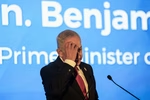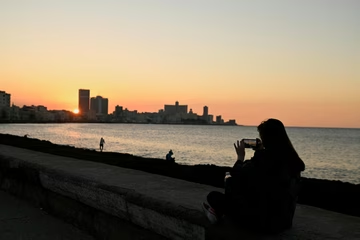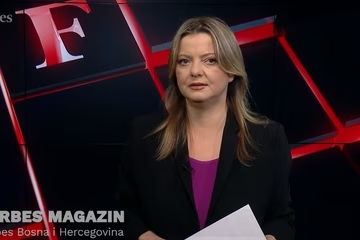EU's Sattler calls on RS entity's authorities to abandon Criminal Code changes

Johann Sattler, the Head of the EU Delegation in Bosnia and Herzegovina, addressed the leadership of Bosnia's Republika Srpska entity parliament, expressing deep concern over the intention to criminalise defamation in that entity through law changes.
Oglas
The EU ambassador sent a note on Monday, a day before the National Assembly of Republika Srpska was set to discuss the changes of the Criminal Code, introducing the criminalising of defamation.
Reportedly, the letter was also sent to Republika Srpska President Milorad Dodik, prime minister Radovan viskovic and Justice Minister Milos Bukejlovic.
“If the Criminal Code would be amended, the consequences will be long-term and harmful, from limiting access to information to creating a climate of fear and repression. Indeed, they would regrettably represent a major step backwards in protection of fundamental freedoms, and thus on the European path. The European Union's concerns have already been clearly conveyed both to the relevant authorities of Republika Srpska as well as publically, but are worth recalling in short," reads the letter.
Sattler also stressed that the right to the freedom of expression is an essential part of the European Convention on Human Rights and is reflected in the 14 key priorities for Bosnia and Herzegovina, as outlined in the European Commission's Opinion on the country's membership application.
“When Bosnia and Herzegovina received candidate status, it was done with a clear and expressed expectation that a number of reform areas would be addressed. One of these was strengthening freedom of expression and freedom of media," he said.
He recalled that the defamation was decriminalised in 2002 on the whole territory of Bosnia and Herzegovina but that the pressure on media remained.
"As regards the argument frequently put forward by proponents of criminalising defamation in the RS that some of the EU member states have provisions which criminalise defamation, we note these provisions are not actively used and are in countries where there are well-functioning media self-regulatory bodies and trusted judicial institutions. This is contrary to the BiH, and RS-specific, context of shrinking public space and concerns about media freedom,” the EU ambassador noted.
He urged the authorities to secure full protection of freedom of expression and media, and not to move forward with the announced changes.
Kakvo je tvoje mišljenje o ovome?
Učestvuj u diskusiji ili pročitaj komentare
Oglas
Kakvo je tvoje mišljenje o ovome?
Učestvuj u diskusiji ili pročitaj komentare
Oglas





 Srbija
Srbija
 Hrvatska
Hrvatska
 Slovenija
Slovenija


























































